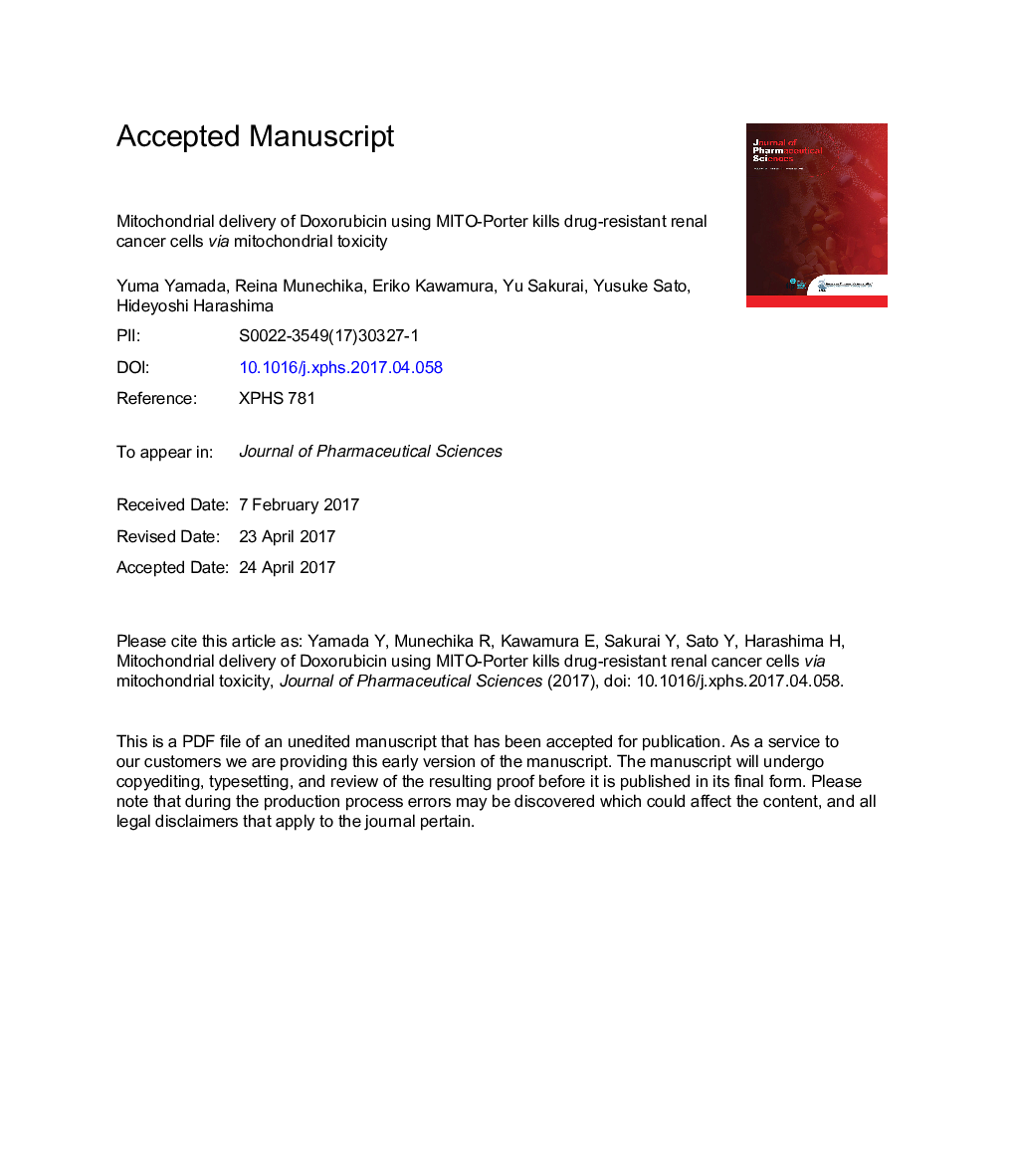| Article ID | Journal | Published Year | Pages | File Type |
|---|---|---|---|---|
| 8513942 | Journal of Pharmaceutical Sciences | 2017 | 28 Pages |
Abstract
Most anticancer drugs are intended to function in the nuclei of cancer cells. If an anticancer drug could be delivered to mitochondria, the source of cellular energy, this organelle would be destroyed, resulting in the arrest of the energy supply and the killing of the cancer cells. To achieve such an innovative strategy, a mitochondrial drug delivery system targeted to cancer cells will be required. We recently reported on the development of a MITO-Porter, a liposome for mitochondrial delivery. In this study, we validated the utility of such a cancer therapeutic strategy by delivering anticancer drugs directly to mitochondria. We succeeded in packaging doxorubicin (DOX) as a model cargo in MITO-Porter to produce a DOX-MITO-Porter. We evaluated cellular toxicity of OS-RC-2 cell, a type of DOX-resistant cancer cell, after delivering DOX to mitochondria using the MITO-Porter system. Cell viability was decreased by the DOX-MITO-Porter treatment, while cell viability was not decreased in the case of naked DOX and a conventional DOX liposomal formulation. We also found a relationship between cellular toxicity and mitochondrial toxicity. The use of a MITO-Porter system for mitochondrial delivery of a toxic agent represents a possible therapeutic strategy for treating drug-resistant cancers.
Keywords
PBS (−)1,2-dioleoyl-sn-glycero-3-phosphatidylethanolamineCHOLDOXTMRMEPCCLSMRPMIAdenosine TriphosphateATPsphingomyelinTemDoxorubicinegg yolk phosphatidylcholineCancerDrug delivery systemsNanotechnologyLiposomesRoswell Park Memorial Institutetetramethylrhodamine methyl esterPhosphate-buffered salineTransmission electron microscopeconfocal laser scanning microscopyNanoparticlespolyethylene glycolPEGDOPEChannelcholesterol
Related Topics
Health Sciences
Pharmacology, Toxicology and Pharmaceutical Science
Drug Discovery
Authors
Yuma Yamada, Reina Munechika, Eriko Kawamura, Yu Sakurai, Yusuke Sato, Hideyoshi Harashima,
